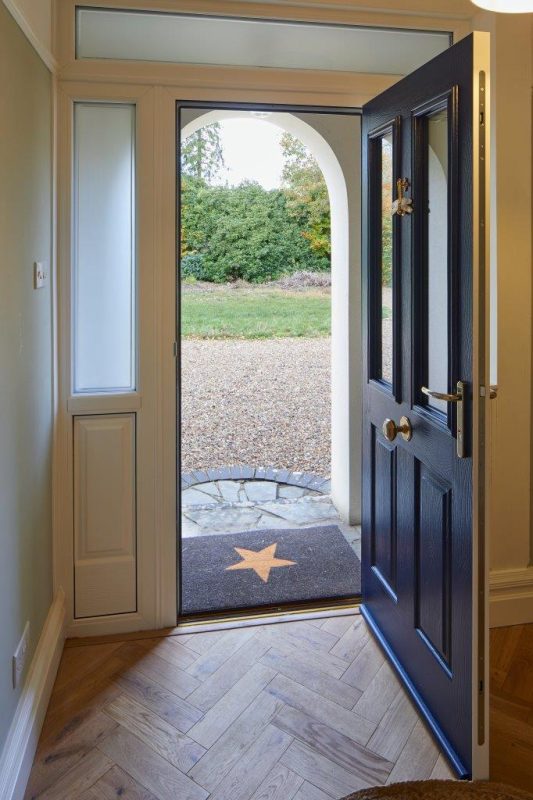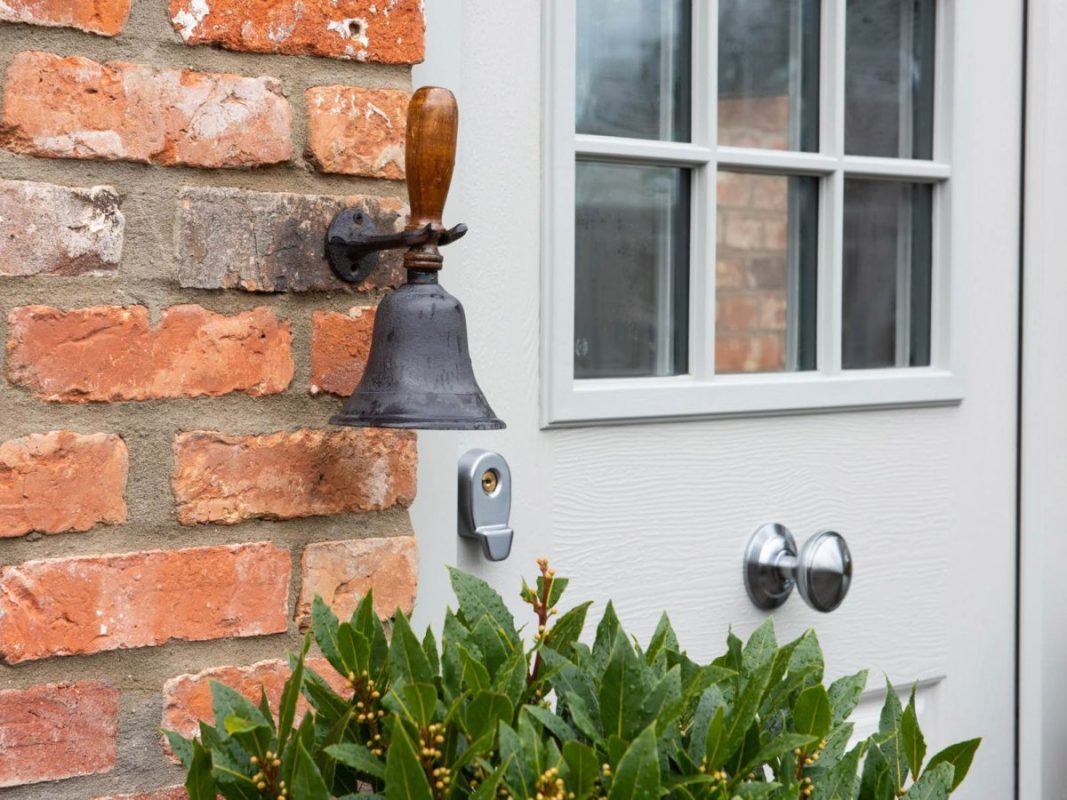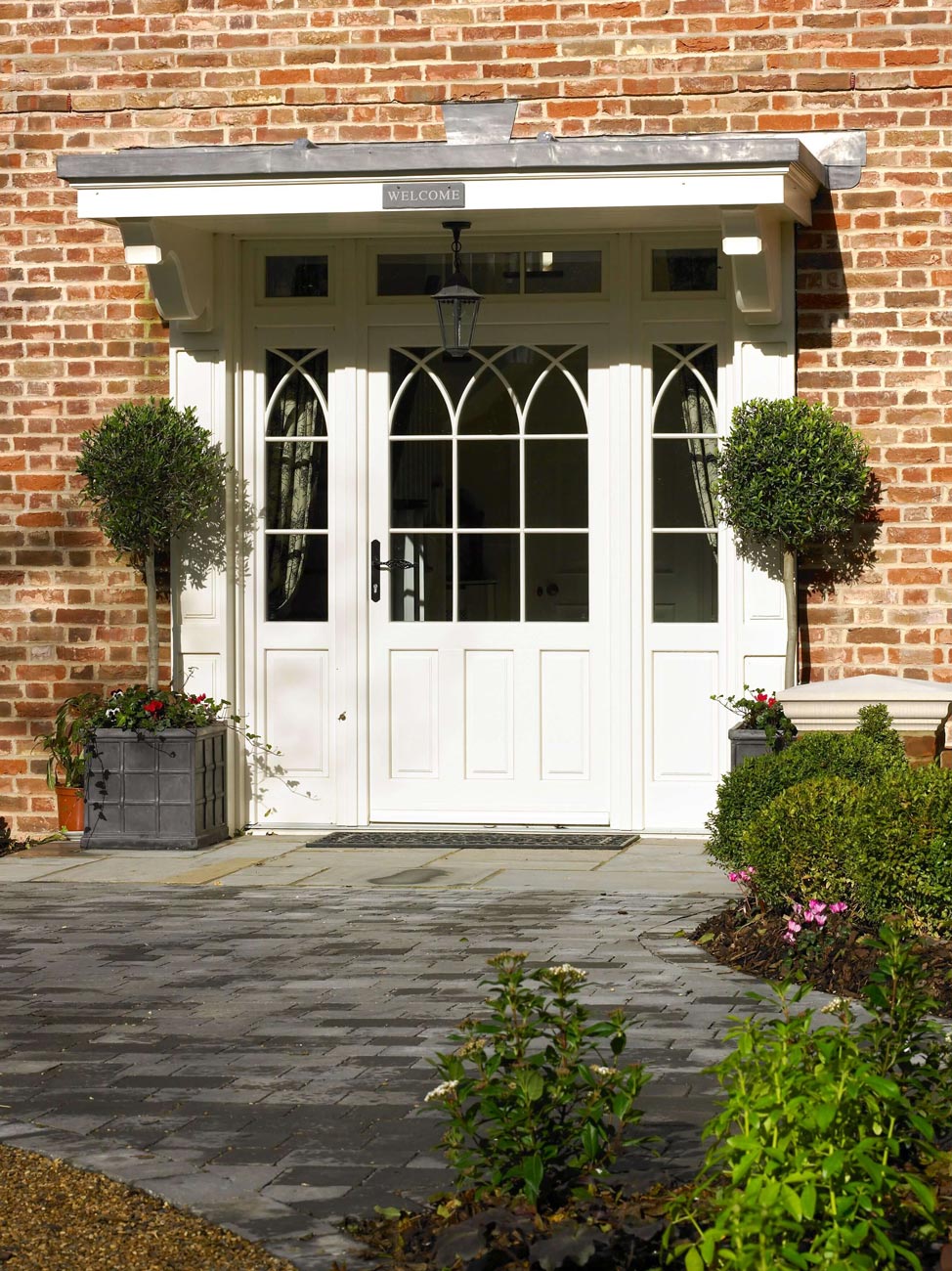When it comes to choosing the perfect front door for your home, warmth and insulation are often top priorities. At Jewel Windows, we understand that picking between a composite door and a timber door can feel tricky, especially when you want to enhance your home's comfort without compromising on style. So, are composite doors warmer than timber ones?
Let’s take a closer look at the material cores and insulating properties of both door types to help you make an informed decision.
Understanding Door Composition and Insulation
The warmth of a door is largely influenced by its core material and overall construction, which directly affect its thermal efficiency which is measured as a U-value. A lower U-value means better insulation, helping to keep heat inside your home and reducing your energy bills.
Composite Doors: A Modern Solution with Superior Insulation
Composite doors have become increasingly popular for their remarkable combination of durability, aesthetics, and thermal performance. At Jewel Windows, our composite doors feature a multi layered construction. Typically, they include a solid inner core made from materials such as insulated foam or engineered timber, sandwiched between outer layers of tough glass reinforced plastic and a stylish, weather resistant finish.
The insulated foam core, often made from high density polyurethane or similar materials, gives composite doors excellent insulating properties. This core traps warm air inside while preventing cold air from infiltrating your home, significantly enhancing energy efficiency. As a result, many composite doors boast very low U-values, often below 1.0 W/m²K, which is exceptional for a front door.
Beyond insulation, composite doors are renowned for their resilience against warping, cracking, and fading which are common issues with natural wood. This means that their thermal performance remains consistent over time, offering peace of mind for homeowners prioritising long term warmth and durability.

Timber Doors: Traditional Beauty with Natural Insulation
Wooden or timber doors represent classic craftsmanship and timeless appeal. At Jewel Windows, our timber doors are crafted from quality hardwoods like oak, offering a natural warmth both visually and physically.
From an insulation perspective, timber is a natural insulator due to its cellular structure. It contains tiny air pockets that slow the transfer of heat, giving it respectable insulating properties compared to many other materials. Hardwood timber doors typically have U-values around 1.2 W/m²K, which is good but slightly higher than that of composite doors with advanced cores.
However, the insulating performance of timber doors can vary based on thickness, construction, and maintenance. Solid timber doors provide good insulation but are susceptible to shrinkage, swelling, and gaps if not properly cared for, which can degrade their thermal efficiency. On the upside, timber doors can be fitted with weatherstripping and draught proofing features to help seal your home better.

Which Door Is Warmer?
In purely numerical terms, composite doors tend to offer superior insulation, thanks largely to the engineered foam cores designed to trap heat effectively. This makes composite doors particularly appealing if your main goal is to maximise energy efficiency and warmth in your home.
That said, timber doors are by no means poor insulators, they provide a natural level of warmth and come with the added benefits of authentic wood’s character and the option for bespoke finishes. For homeowners who value traditional aesthetics and don’t mind investing in regular upkeep, timber doors remain a solid choice.
Consider Other Factors Too
When deciding between a composite door and a timber door, insulation is just one part of the equation. You should also weigh up factors such as style preferences, maintenance commitments, security features, and budget.
Composite doors are low maintenance, weather resistant, and highly secure, making them ideal for busy households or anyone seeking durability without frequent repainting or sealing. Timber doors, while requiring a little more care, offer natural beauty that often suits period properties or those seeking a classic appearance.

Which Door Is Right For You?
Ultimately, both composite doors and timber doors can enhance your home’s insulation if selected and installed correctly. Composite doors generally edge ahead on thermal performance because of their engineered cores and lower U-values, but timber doors provide a natural, tactile appeal that many homeowners cherish.
At Jewel Windows, we offer expert advice and high quality installation services for both composite and timber doors, ensuring your choice suits your home and lifestyle perfectly. If you’d like to explore the options further and find the best front door for your needs, please get in touch with our team. We can also provide a bespoke quote tailored to your property.
Looking for a warm, stylish door that’s built to last? Whether you decide on a composite or timber door, Jewel Windows is here to help you make the right choice. Get a quote today and take the first step towards a cosier, more energy efficient home.
Alternatively, take a look at our brochures for inspiration!


